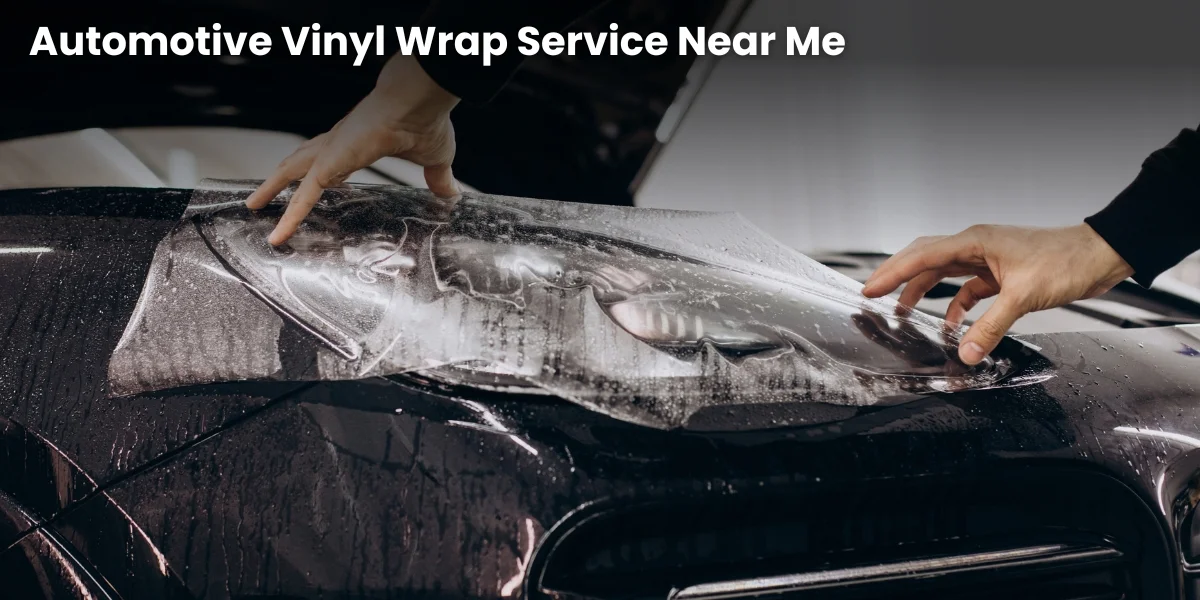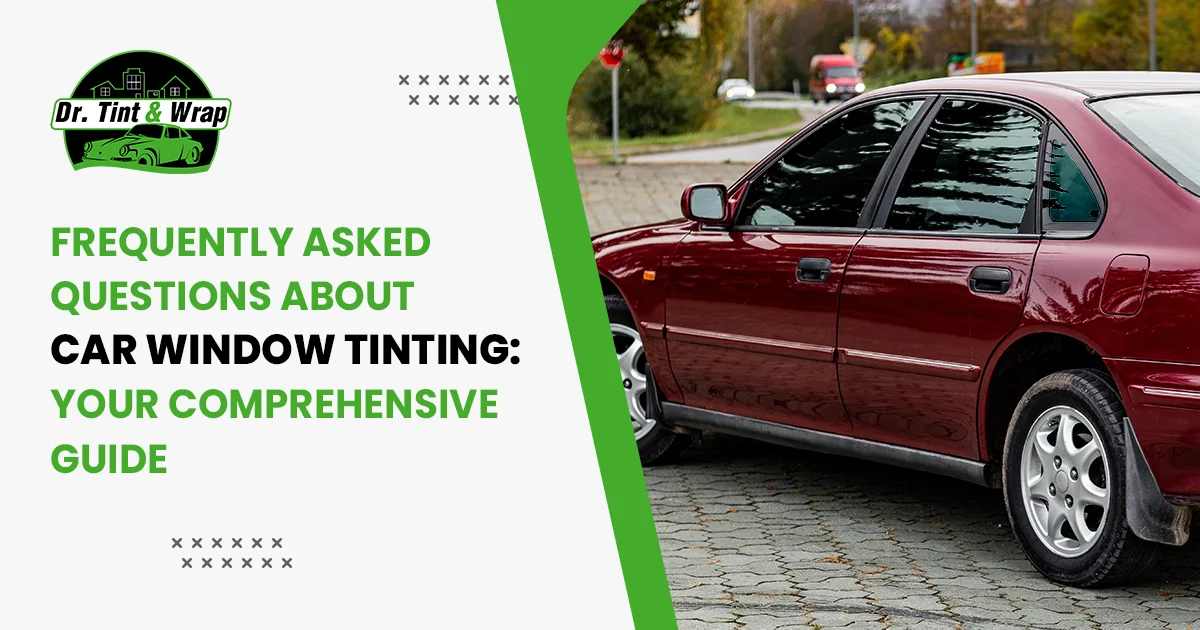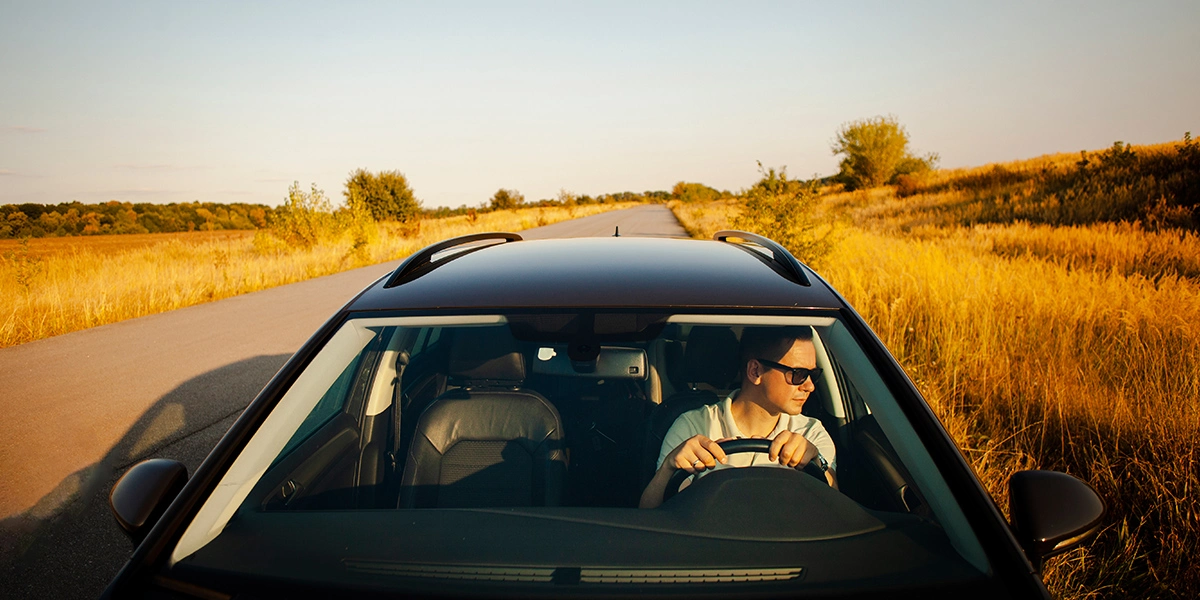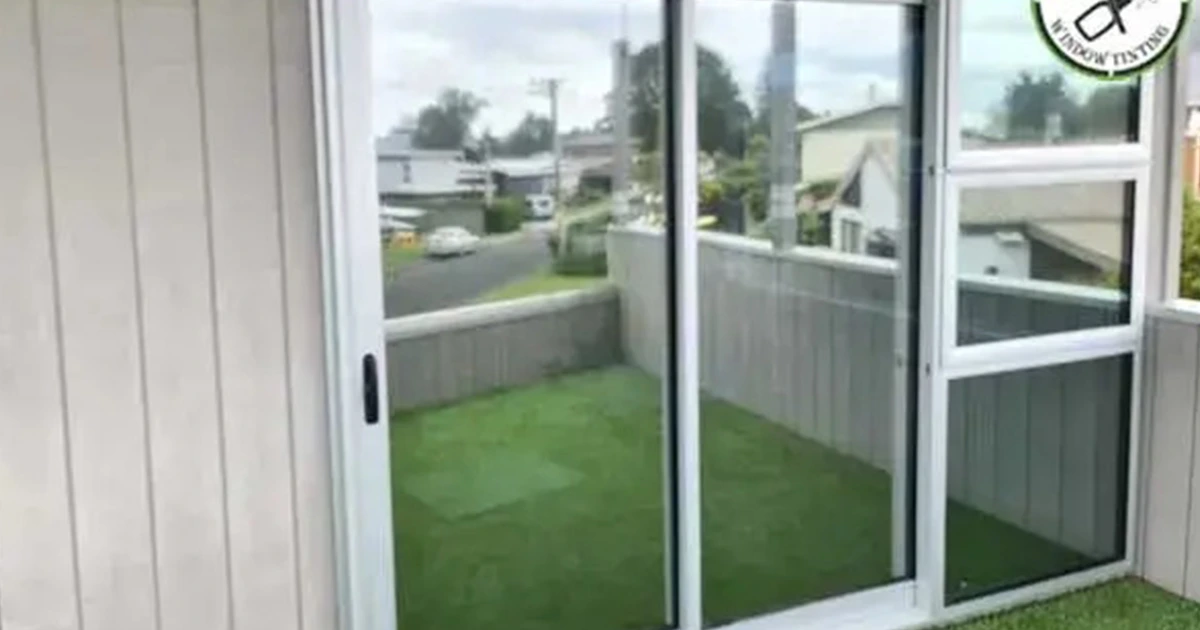
Automotive Vinyl Wrap Service Near Me
16 Aug 2024, By AdminTransform your car with Tint a Car – New Zealand’s most trusted name in vinyl wraps and tinting, with over 50 years of experience. We offer professional installations and exclusive products backed by a lifetime nationwide warranty on most films, plus a 30-day money-back guarantee.
What is vinyl car wrapping?
Vinyl car wrapping involves covering your car with high-quality vinyl film, available in a variety of colors, textures, and custom designs. This gives your car a fresh, unique look while also protecting the original paint from damage caused by environmental factors like bird droppings or tree sap.
Why wrap your car?
Wrapping your car is an affordable way to refresh its look while providing a layer of protection. It’s significantly cheaper than a traditional paint job, which can cost anywhere from $1,000 to $10,000. Vinyl wraps start as low as $50 for smaller areas like side mirrors, with larger sections like the bonnet costing around $350. The final price depends on the size of your car and the amount of wrapping needed.
What parts of the car can be wrapped?
From bonnets, roofs, and boots to door handles and racing stripes – we can wrap almost any part of your car. Full wraps are also available for a complete transformation. With a lifespan of 1 to 10 years, vinyl wraps protect your car's original paint from minor chips, weathering, and natural hazards, which can help increase resale value.
Easy to Maintain
Maintaining a vinyl wrap is a breeze—no waxing is required! Just soap and water are enough to keep your car looking clean and sleek. And if you ever want a change, the wrap can be safely removed without affecting the original paint underneath.
Vinyl Wraps for Businesses
Want to promote your business on the go? Vinyl wraps are the perfect solution. Provide us with your design, and we’ll turn your vehicle into a mobile billboard.
Elevate your car’s look and protection with Tint a Car – the experts in vinyl wrapping and tinting in New Zealand.

Frequently Asked Questions about Car Window Tinting: Your Comprehensive Guide
16 Aug 2024, By AdminCar window tinting has become increasingly popular for its numerous benefits, from enhancing privacy and aesthetics to protecting against harmful UV rays. However, with its rising popularity, there come several questions. In this blog post, we'll address some of the most common queries people have about car window tinting, providing accurate and informative answers to help you make an informed decision.
1.Why should I tint my car windows?
Car window tinting offers several benefits, including UV protection, heat reduction, glare reduction, enhanced privacy, and safeguarding your vehicle's interior from fading. It also adds to the overall aesthetics of your car.
2. Is car window tinting legal?
Yes, but the legal limits vary by state and country. It’s crucial to check local regulations. Most places have restrictions on how much visible light can pass through the tint. Professional tinting services are typically aware of local laws and ensure your tinting adheres to these regulations.
3. Can window tinting prevent my skin from getting damaged by UV rays?
Yes, quality window tints block a significant amount of UV rays, reducing your exposure and minimizing the risk of skin damage. This protection is especially important for people who spend a lot of time driving.
4. Does window tinting interfere with visibility, especially at night?
When professionally installed, window tints should not interfere with visibility, both during the day and at night. It’s essential to choose an appropriate tint shade and have it installed correctly to ensure clear visibility.
5. How long does the tinting process take?
The time taken to tint your car windows depends on the type of vehicle and the complexity of the job. On average, it takes a professional installer a few hours to complete the process. However, this can vary, so it’s best to check with the service provider.
6. Can I wash my car immediately after tinting?
No, you should wait a few days before washing your car after window tinting. This allows the adhesive to cure completely, ensuring the tint adheres properly to the glass. Follow the specific guidelines provided by the tinting professional for the best results.
7. How long will window tinting last?
The lifespan of window tinting varies based on the quality of the tint and the installation. High-quality tints, when professionally installed, can last between 10 to 15 years. Regular maintenance and cleaning also play a role in prolonging the tint’s life.
8. Can I tint my windows myself with a DIY kit?
While DIY kits are available, professional installation is recommended for the best results. Professional installers have the expertise and tools to ensure the tint is applied evenly and without bubbles or imperfections. DIY tinting can often result in subpar outcomes.
9. Will window tinting interfere with my car's electronics or radio signals?
No, high-quality window tints do not interfere with your car’s electronics or radio signals. Modern window films are designed to be non-conductive and won’t disrupt your vehicle's electrical systems.
10. How do I maintain my tinted windows?
Maintaining tinted windows is relatively easy. Clean them with a mild, non-ammonia-based cleaner and a soft cloth. Avoid using abrasive materials that could scratch the surface. Regular cleaning helps maintain the tint's appearance and longevity. In conclusion, car window tinting is a practical and valuable investment for your vehicle. By understanding the process and benefits, you can make an informed decision and enjoy the many advantages that tinted windows offer. Always opt for professional installation to ensure a high-quality and long-lasting result.

Can I Tint My Car's Windscreen in New Zealand?
16 Aug 2024, By AdminCar windscreen tinting in New Zealand is subject to specific regulations to ensure safety and compliance with the law. According to New Zealand's Land Transport Rule, tinting on the front windscreen is generally restricted. A clear strip at the top of the windscreen, often referred to as a Sun strip, is permissible but must not exceed 100mm in width. This strip helps reduce glare from the sun while driving. For the rest of the windscreen, a minimum of 70% Visible Light Transmission (VLT) is required, meaning the tint must allow at least 70% of light to pass through. These regulations are in place to ensure drivers maintain clear visibility for safe driving conditions. Before proceeding with car windscreen tinting, it is crucial to consult with professional tinting services to ensure your vehicle adheres to these legal requirements.
Understanding Car Windscreen Tint Regulations
In New Zealand, the Land Transport Rule: Vehicle Equipment and Inspection (2004) sets out clear guidelines regarding the tinting of car windows, including the windscreen. According to these regulations, there are strict rules about how much tinting is allowed on the windscreen to ensure driver visibility and road safety.
Key Regulations for Windscreen Tinting:
- Visibility Requirements: The most crucial regulation is that the windscreen must allow a certain level of light transmission. The rule generally states that the windscreen must allow at least 70% of light to pass through. This ensures that drivers have an unobstructed view of the road and surroundings.
- Tinted Bands: While full tinting of the windscreen is not permitted, you can apply a tinted band to the top of the windscreen. This band, also known as a Sun strip, helps to reduce glare from the sun without compromising visibility. The band must be positioned above the line of sight and should not exceed a certain percentage of the windscreen’s total area.
- Quality of Tint Film: Any tint film used on the windscreen must comply with New Zealand standards and should not interfere with the vehicle's safety features, such as airbags or sensors. It's important to choose a high-quality tint film that meets these standards to avoid any legal issues.
Why Consider Tinting Your Windscreen?
While the full tinting of the windscreen is restricted, a tinted sunstrip can offer several benefits:
- Reduced Glare: A tinted sun strip can significantly reduce glare from the sun, improving driving comfort and safety during sunny conditions.
- Heat Reduction: Tinted bands can help reduce the amount of heat that enters your vehicle, making it more comfortable during hot days.
- UV Protection: Tinted films can block harmful UV rays, protecting the interior of your car from fading and damage.
Choosing a Professional Tinting Service
If you’re considering adding a tinted band to your windscreen, it’s best to consult with a professional tinting service. They will ensure that the tint complies with New Zealand regulations and is applied correctly. Professional tinting services can also offer advice on the best type of tint film to use and can help you choose a solution that meets your needs while adhering to legal requirements.
Conclusion
In summary, while full tinting of your car's windscreen is not allowed in New Zealand, you can apply a tinted band to the top of the windscreen to reduce glare and enhance comfort. It’s essential to adhere to the regulations regarding light transmission and the quality of tint film to ensure safety and compliance. If you’re considering this enhancement, consult with a professional to get the best results and avoid any legal issues. By understanding and following these guidelines, you can enjoy the benefits of car windscreen tinting while staying within the legal limits.

Home Window Tinting: What Is It and How Much Does It Cost?
16 Aug 2024, By AdminAs homeowners seek innovative ways to improve comfort, energy efficiency, and privacy, home window tinting has become a popular solution. But what exactly is home window tinting, and how much does it cost? In this blog, we’ll dive into the benefits, process, and pricing of this transformative home upgrade.
What is Home Window Tinting?
Home window tinting involves applying a thin, durable film to the interior or exterior of your windows. The film is designed to reduce heat, glare, and UV rays while offering privacy. While window tinting is commonly associated with cars, it has gained popularity for residential applications due to its ability to enhance energy efficiency and protect home interiors.
Types of Window Tinting Films:
- Solar Control Films: Reduce heat and glare, keeping your home cooler in the summer and reducing energy costs.
- Security Films: Provide added protection by making glass more difficult to break, preventing potential intrusions.
- Decorative Films: Offer an aesthetic appeal with frosted or colored designs that add privacy without sacrificing style.
- UV Blocking Films: Block up to 99% of harmful UV rays, helping to protect furniture, floors, and artwork from fading.
Benefits of Home Window Tinting
- Energy Efficiency: One of the key advantages of home window tinting is its ability to lower energy bills. By blocking heat from entering your home during the summer and insulating windows during the winter, your HVAC system doesn’t have to work as hard to maintain a comfortable temperature.
- UV Protection: Prolonged exposure to UV rays can damage your skin and fade your furniture and flooring. Tinted windows can block a significant portion of UV rays, safeguarding your home and family.
- Privacy: Tinted windows offer enhanced privacy by limiting the view into your home from the outside, making it difficult for people to see inside during the day.
- Reduced Glare: Home window tinting can significantly cut down on glare, improving comfort while watching TV, using computers, or simply relaxing.
- Security: Security films make windows harder to break, adding a layer of protection against intruders and severe weather.
How Much Does Home Window Tinting Cost?
The cost of home window tinting depends on several factors, including the size and number of windows, the type of film you choose, and the complexity of the installation. Here’s a general breakdown:
- Cost Per Square Foot: Home window tinting typically ranges from $5 to $15 per square foot. High-end or specialized films, such as security or decorative films, can be on the higher end of this range.
- Installation Costs: Installation costs vary depending on the difficulty of the project. Professional installation ensures a smooth, bubble-free application and can range from $150 to $400 per window. Large or uniquely shaped windows may cost more due to the complexity of the installation.
- DIY vs. Professional Installation: While DIY window tinting kits are available and can be a more affordable option (around $2 to $4 per square foot), they often lack the quality and durability of professional-grade films. A DIY job also carries the risk of errors, such as bubbles or peeling, which may result in additional costs down the line.
Factors Affecting the Cost of Home Window Tinting
- Window Size and Quantity: The more windows you have, the more the project will cost. Larger windows also increase costs due to the additional material and time required.
- Film Type: The specific type of film you choose impacts the price. Decorative, security, or UV-blocking films are usually more expensive than basic solar films.
- Location: Installation costs can vary depending on your geographic location and the availability of professional services.
- Additional Features: Some window films offer extra benefits like anti-glare or energy efficiency, which may come at a higher cost.
Is Home Window Tinting Worth the Investment?
Given the benefits of energy savings, enhanced privacy, and UV protection, home window tinting can be a smart investment for homeowners. In regions with extreme heat or cold, the energy savings alone can offset the initial cost over time. Additionally, the long-term benefits of protecting your furniture and reducing the risk of break-ins make it a valuable home improvement option.
Home window tinting is a cost-effective way to improve energy efficiency, privacy, and security in your home. While prices can vary depending on your specific needs, the long-term benefits make it a worthwhile investment for many homeowners. Whether you opt for professional installation or a DIY approach, window tinting offers a range of solutions to enhance your living space.
If you’re considering tinting your home’s windows, get quotes from local professionals to determine the best options for your budget and needs.
